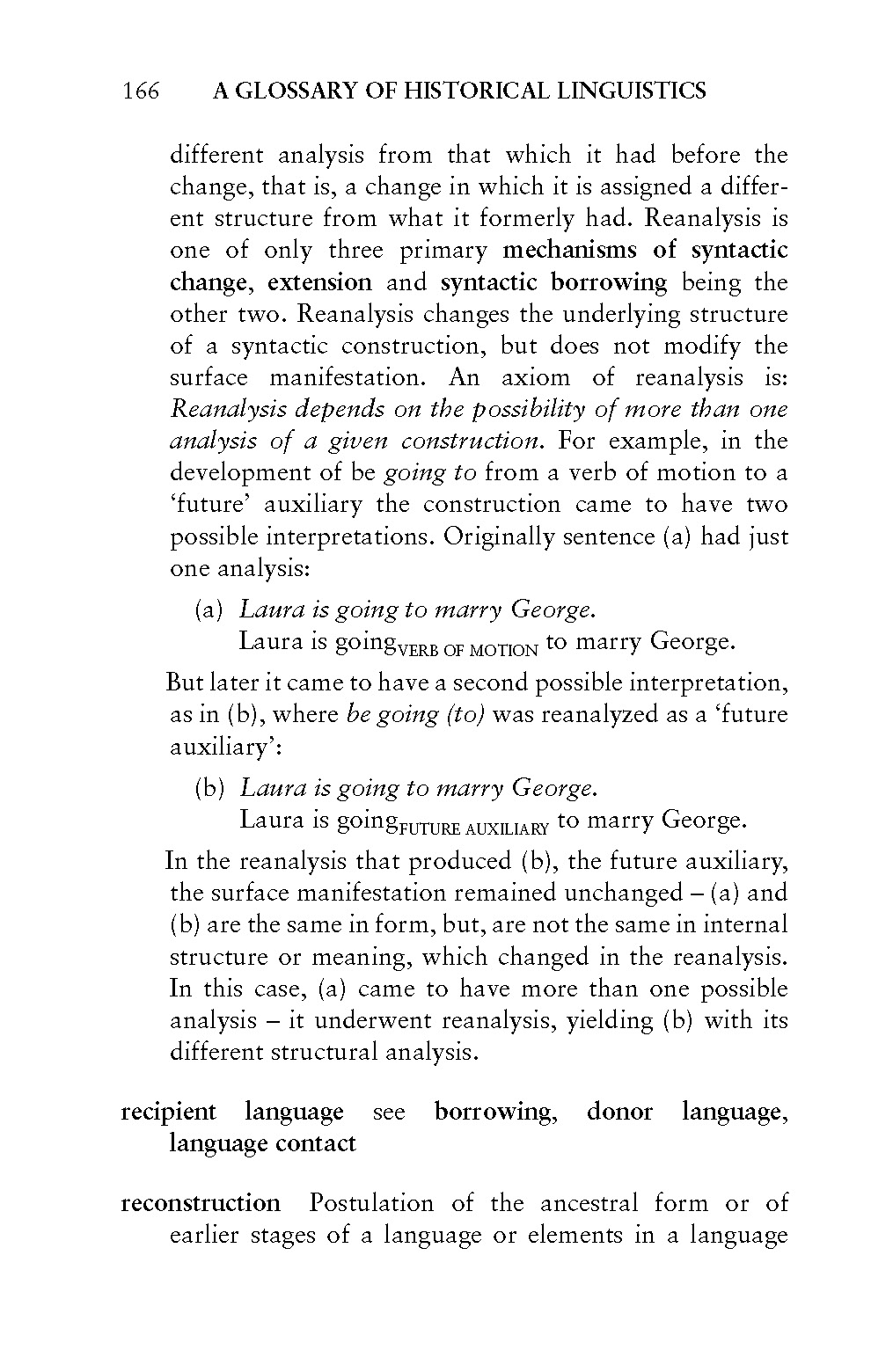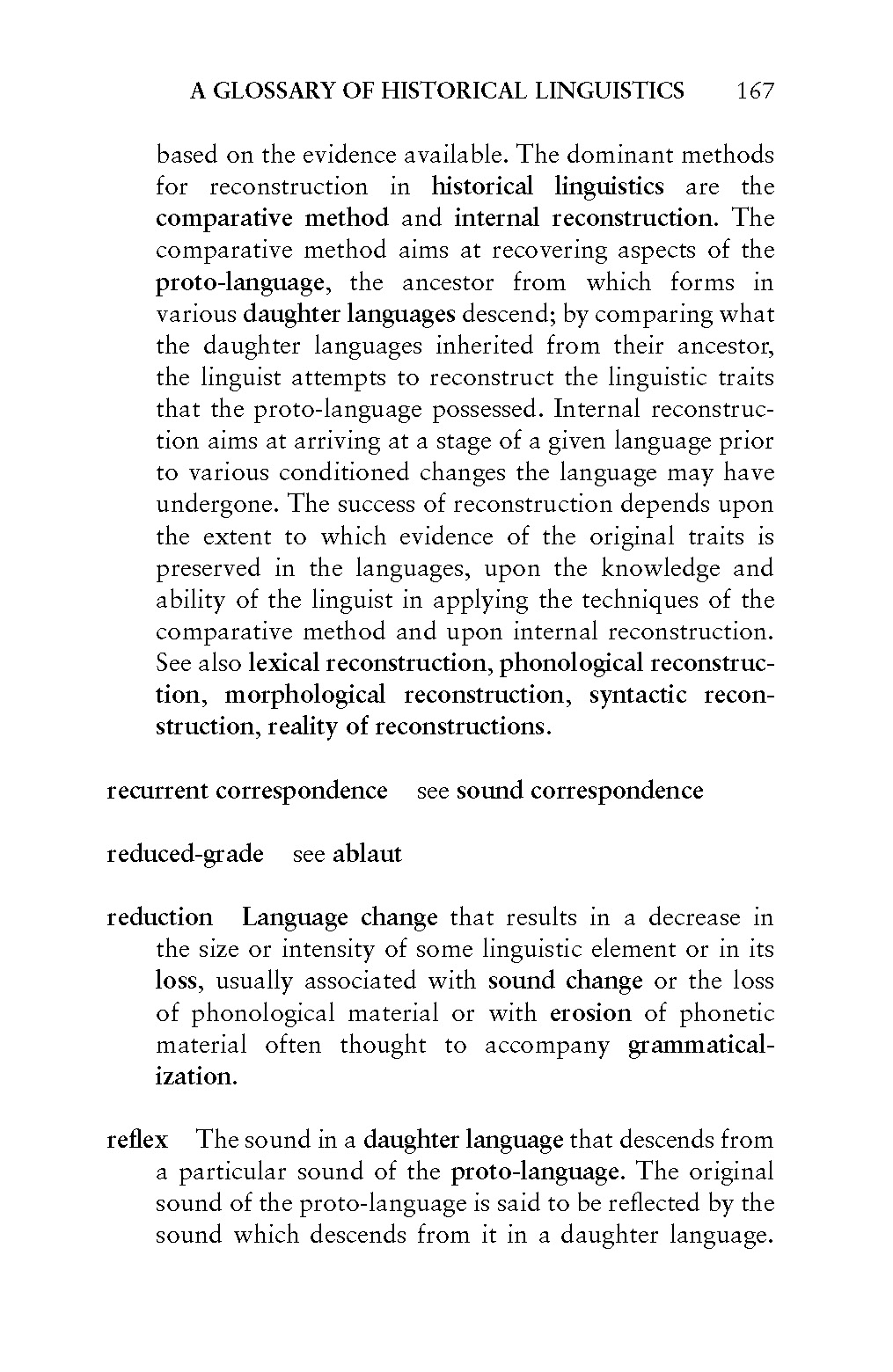Definition of Reconstruction
Source: A Glossary of Historical Linguistics
"reconstruction"
Postulation of the ancestral form or of earlier stages of a language or elements in a language based on the evidence available. The dominant methods for reconstruction in historical linguistics are the comparative method and internal reconstruction. The comparative method aims at recovering aspects of the proto-language, the ancestor from which forms in various daughter languages descend; by comparing what the daughter languages inherited from their ancestor, the linguist attempts to reconstruct the linguistic traits that the proto-language possessed. Internal reconstruction aims at arriving at a stage of a given language prior to various conditioned changes the language may have undergone. The success of reconstruction depends upon the extent to which evidence of the original traits is preserved in the languages, upon the knowledge and ability of the linguist in applying the techniques of the comparative method and upon internal reconstruction. See also lexical reconstruction, phonological reconstruction, morphological reconstruction, syntactic reconstruction, reality of reconstructions.
Lyle, GHL, 166–167. [View as image] [Read on OMNIKA]
Page Image(s)


Citation
PsychLing Contributors. "Reconstruction." PsychLing, OMNIKA Foundation, 3 Sep. 2023, psylng.org/glossary/term/reconstruction. Accessed 16 Feb. 2026.
PsychLing (2023, September 3). Reconstruction. Retrieved from https://psylng.org/glossary/term/reconstruction
Bibliography
APA Contributors. "APA Dictionary of Psychology." Washington, DC: American Psychological Association. Accessed September 14, 2023. https://dictionary.apa.org. [Visit]
Campbell, Lyle R., and Mauricio J. Mixco, eds. A Glossary of Historical Linguistics. Edinburgh, Scotland: Edinburgh University Press, 2007.
